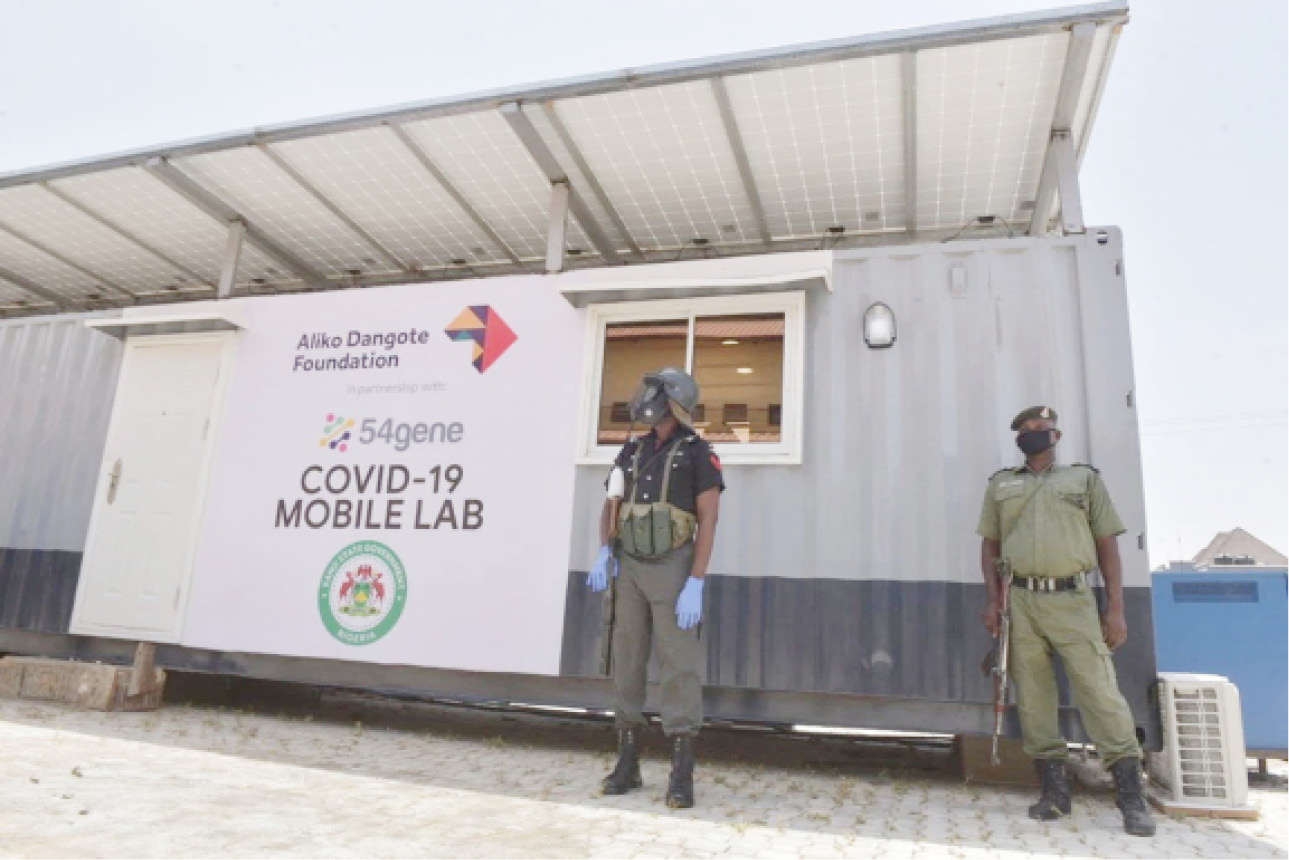Dozens of doctors are infected and gravediggers are overwhelmed in Kano, Nigeria’s second-largest city, where inaction led to an unchecked outbreak. Across Africa, other hot spots are emerging.
In the northern Nigerian city of Kano, some people say they now get four or five death notices on their phones each day: A colleague has died. A friend’s aunt. A former classmate.
The gravediggers of the city, one of the biggest in West Africa, say they are working overtime. And so many doctors and nurses have been infected with the coronavirus that few hospitals are now accepting patients.
Officially, Kano has reported 753 cases and 33 deaths attributed to the virus. But in reality, the metropolis is experiencing a major, unchecked outbreak, according to doctors and public health experts. It could be one of the continent’s worst.
The coronavirus has been slower to take hold in Africa than on other continents, according to the numbers released daily by the World Health Organization.
But blazing hot spots are beginning to emerge. Kano is only one of several places in Africa where a relatively low official case count bears no resemblance to what health workers and residents say they are seeing on the ground.
In Somalia’s capital, Mogadishu, officials say that burials have tripled. In Tanzania, after cases suddenly rose and the United States Embassy issued a health alert, the Tanzanian government abruptly stopped releasing its data.
Kano’s state government, until recently, claimed a spate of unusual deaths was caused not by the coronavirus, but by hypertension, diabetes, meningitis or acute malaria. There is little social distancing, and few people are being tested.
“The leadership is in denial,” said Usman Yusuf, a hematology-oncology professor and the former head of Nigeria’s national health insurance agency. “It’s almost like saying there is no Covid in New York.”
He said he thought a significant portion of the population was probably infected in Kano, a city with an estimated five million people (though there has been no census since 2006).
Though they have now acknowledged they have a problem with Covid-19, the disease caused by the coronavirus, the authorities in Kano spent precious weeks denying it, despite the surge in what Abdullahi Umar Ganduje, the state governor, called “mysterious deaths.”
“So far, there’s been nothing to suggest that they are linked with Covid-19,” Mr. Ganduje posted on Twitter on April 27, when, according to doctors in Kano’s hospitals, the city was already firmly in the grip of a serious coronavirus outbreak.
There was nothing mysterious about what doctors said they were seeing at Aminu Kano Teaching Hospital, the city’s main public hospital. Starting well before Kano’s first case was reported on April 11, the hospital saw a steady stream of older patients with fevers, coughs, difficulty breathing and low oxygen saturation levels, many of them with underlying health conditions.
Doctors at the hospital called the government’s response team. Sometimes it took 24 hours to get a call back. Sometimes, the team refused to test or isolate patients, saying they did not qualify because they had not travelled recently.
About 60 to 70 per cent of the elderly patients who went to the hospital and later died had arrived with full symptoms of Covid-19, said a doctor in the medical department, who, along with another doctor, spoke on condition of anonymity because they feared retribution.
One doctor said the department’s death registers for April showed far more patients had died than normal. Most patients were sent home, he said, and the hospital’s staff members often would hear later that they had died.
With no personal protective equipment except surgical masks, the doctors said they knew the risks they were running in treating these patients. They said that they begged the hospital management for N-95 masks, face shields, gloves and aprons, but that none came. They asked for an isolation center at the hospital, scared that patients with other ailments would be infected. They wanted the facilities fumigated. Nothing happened.
And then it was too late. The doctors began to get sick.
“All of us were exposed,” said the other doctor. “Ultimately, what we feared has happened.”
Twenty of the 91 doctors in the hospital’s medical department tested positive, the doctors said. Overall in Kano, 42 doctors and 28 nurses have tested positive, and one doctor has died, according to Dr. Sanusi Bala, chairman of the Kano branch of the Nigerian Medical Association. Laboratory technicians in what was then Kano’s only testing laboratory got sick too, and it closed for several days. The city’s health system, already extremely limited, was crippled.
Nigeria, a country of about 200 million people, says it can in theory do 2,500 tests a day, and Kano up to 500. But it has been conducting far fewer tests, typically 1,000 to 1,200 daily. Test results in Kano can take two weeks. Doctors awaiting their test results cannot go to work. People in quarantine cannot leave.
“If I say thousands of people are dying from Covid, I don’t think I exaggerated the figure,” said the doctor who begged for P.P.E. “So many people are dying without being tested, without even going to the hospital.”
While the government loosened lockdowns on May 4 in the capital, Abuja, and biggest city, Lagos, it extended the one in Kano. But few people observe it. The many funerals are well attended, residents said.
Many in the city think the coronavirus is a hoax, perhaps because public messaging about it is mostly in English, which most Kano residents do not speak, health experts said.
Others believe that a Covid-19 diagnosis is a death sentence, the experts said, and do not want their neighbours to think they are infected. So they avoid being tested, and try to behave as if all is normal.
They go to burials, and shake fellow mourners’ hands because it would be socially unacceptable not to. They shop, barefaced, in crowded markets. They hold soccer tournaments – a recent one was called the “Coronavirus Cup.”
While the situation in Kano is grim, the picture varies greatly from one country in Africa to another.
From the numbers gathered by the World Health Organization and other groups, Djibouti, in East Africa, looks as if it has the highest infection rate per capita on the continent, at 1 in 746 people. But public health officials interviewed there attribute that to aggressive testing and contact tracing. Anyone who tests positive is hospitalized, even if no symptoms are apparent.
Tanzania has reported 509 cases, but it stopped releasing data two weeks ago, and the United States Embassy there said on Wednesday that the risk of contracting Covid-19 was “extremely high.” A government spokesman told the BBC that testing had been suspended while the authorities investigated the many testing kits, but denied that Tanzania was doing too little to stop the virus’s spread.
In Somalia, more than 1,200 people have tested positive and, officially, 53 have died. But doctors, officials and humanitarian workers think these numbers are way off. Thousands of people with the virus are staying home and not getting tested, they say.
The office of the Somali prime minister, which is overseeing the response to the outbreak, has dismissed the notion of a hidden toll, saying Mogadishu has already reached its peak.
Dr. Mohamed Abdi Hassan, who is leading the medical response to Covid-19 at the prime minister’s office, said that “there might be cases here and there that abruptly died and then were buried,” but that the number of instances in which people had died of the coronavirus without being tested had been exaggerated. “We have as much as possible captured the real picture.”
In Nigeria, some say that with the outbreak in Kano so widespread, the city may already be home to a giant, unintentional experiment in herd immunity.
“The disease is taking its natural course,” said Dr. Faruk Sarkinfada, a medical microbiologist who works in Kano.
Eighty per cent of tests conducted in the city are coming back positive, a presidential task force sent to Kano in late April told the BBC’s Hausa-language service.
But since no one trusts the official reports, Kano’s citizens have come up with their own ways of gauging the toll of the virus.
Nazir Adam Salih, a writer and engineer, conducted an impromptu survey of more than 100 acquaintances. Almost all said they had fever, cough and loss of smell. Almost none had gotten tested or treated.
Doctors phone relatives of the dead to conduct “verbal autopsies.”
By late April, the Kano State government finally admitted there was a Covid-19 problem and asked the federal government for help. Dr. Sarkinfada, the medical microbiologist, said that the federal government focused its efforts on increasing Kano’s testing capacity, and that test results were now coming in sooner.
“The Kano situation has seen us through deception, denial, defiance, denunciation, disagreement and finally acceptance and action to control the disaster,” said Oyewale Tomori, a virologist who leads a Nigerian government committee on Covid-19.
Kano’s location, population and connectivity to the rest of the region mean the consequences of an uncontrolled outbreak could be severe.
Already there are reports of hundreds more people dying “mysterious deaths” in Nigeria’s northern states of Jigawa, Yobe, Sokoto and Katsina, including three emirs, or traditional Muslim rulers, and a former health minister.
“If Kano falls, the whole of northern Nigeria falls. The whole of Nigeria falls,” Dr. Yusuf said. “It spreads into the whole of West Africa and the whole of Africa.”
Source:www.nytimes.com




